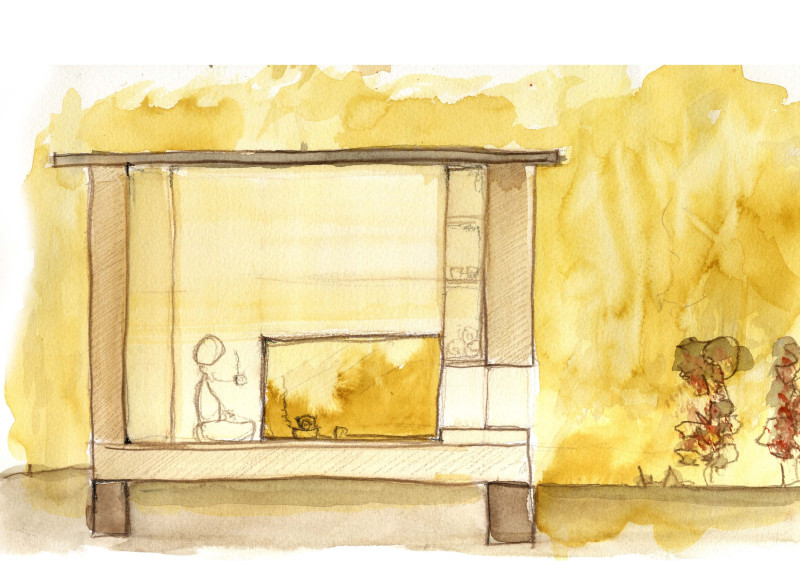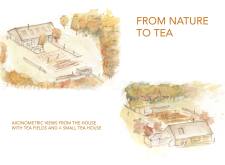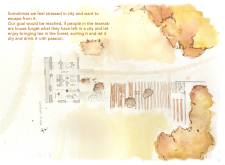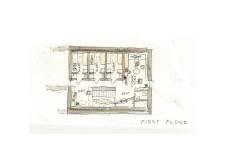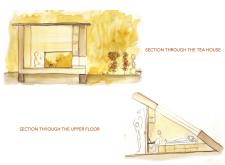5 key facts about this project
The primary function of the project centers around the cultivation, preparation, and consumption of tea. It includes different spaces, such as workshops for tea processing, communal areas for social interaction, and private sleeping quarters for visitors. The organization of these spaces reflects a thoughtful approach to user experience, allowing individuals to participate in the entire tea cycle, from harvesting to brewing.
The architectural design is characterized by a strong connection to the surrounding environment. The use of natural materials like wood and stone enhances its integration with the landscape, allowing the structure to blend smoothly into the scenic backdrop. Large glass elements provide views of the tea fields, promoting transparency and a sense of openness. This design approach encourages occupants to engage with the landscape, establishing a direct relationship between the built environment and nature.
Unique features of the project include its emphasis on wellness and holistic living. The layout promotes tranquility through the careful arrangement of spaces, providing areas for solitary reflection as well as communal gathering. The project’s focus on tea culture not only fosters a sense of community but also highlights the importance of sustainable practices in agriculture and architecture. The design prioritizes environmental consciousness by utilizing locally sourced materials and by encouraging visitors to appreciate the natural cycles involved in tea production.
In examining the architectural plans and sections, clarity in the spatial arrangement underscores the project’s functional integrity. The thoughtful design responds to the geographical context, enhancing the user experience while promoting ecological awareness. For those interested in architectural ideas that blend functionality with environmental sensitivity, exploring the detailed presentation of this project, including its architectural designs and sections, can provide deeper insights into its innovative approach.


